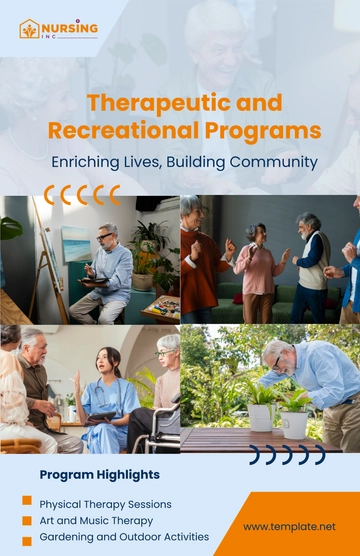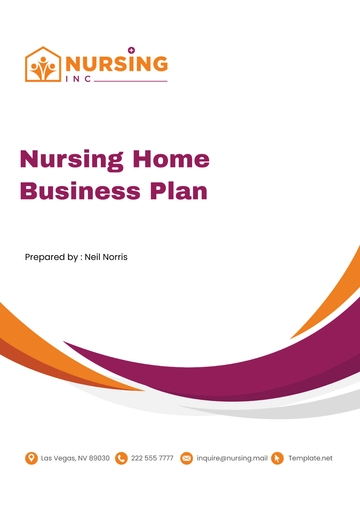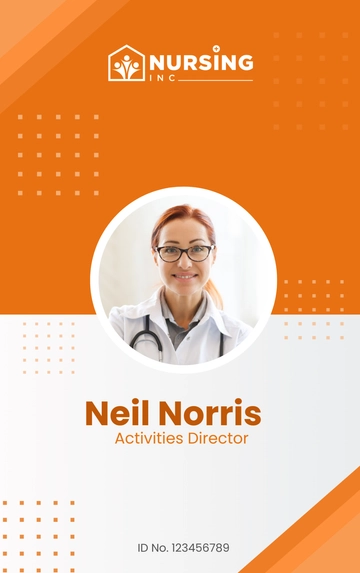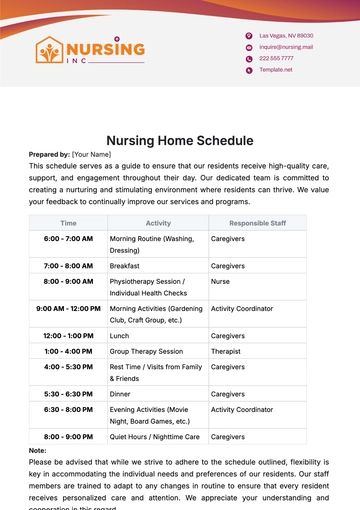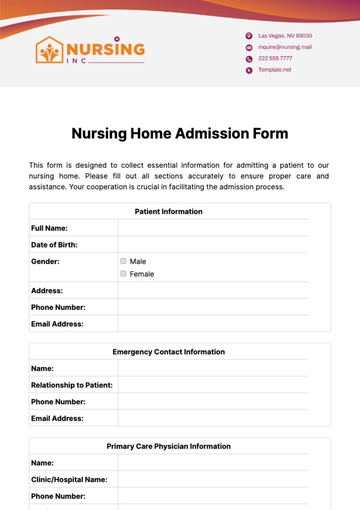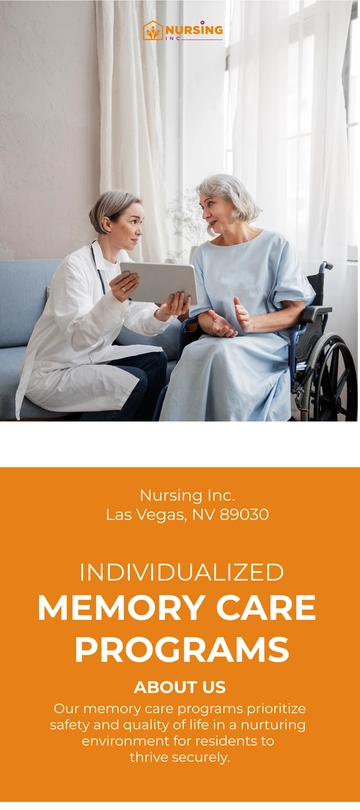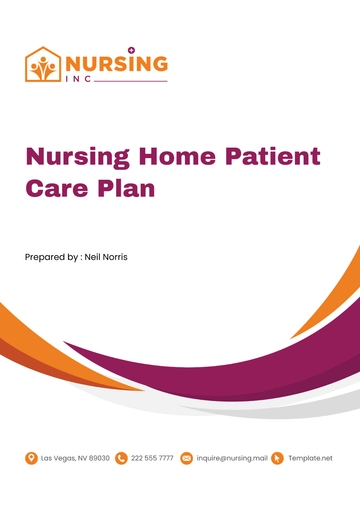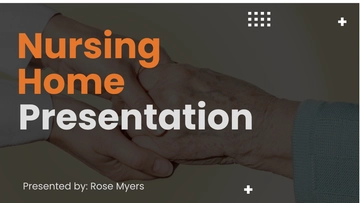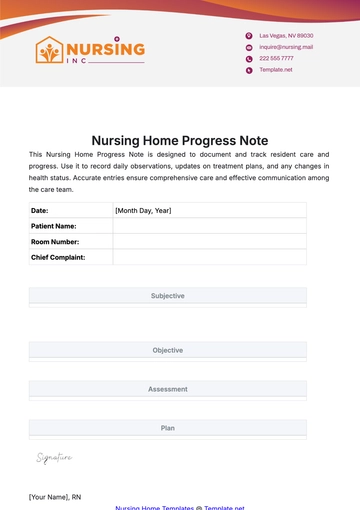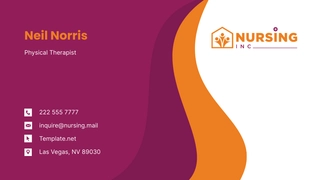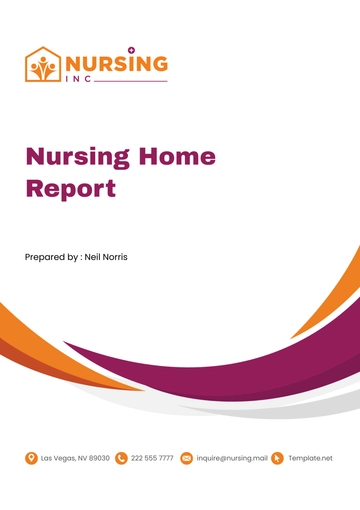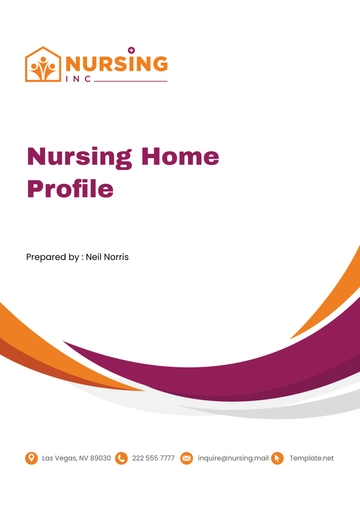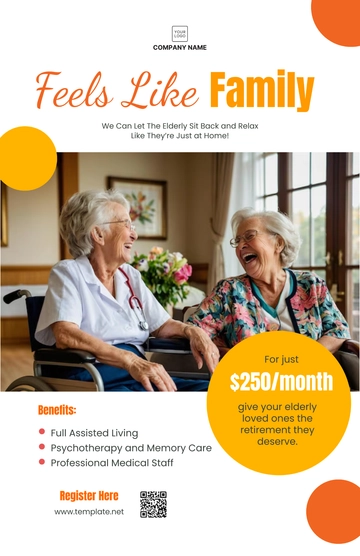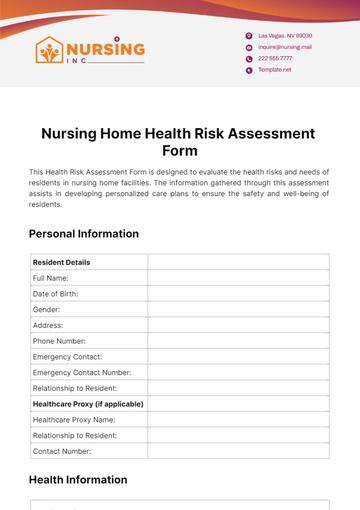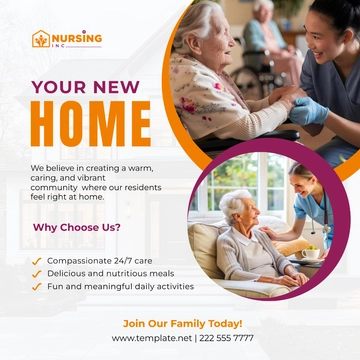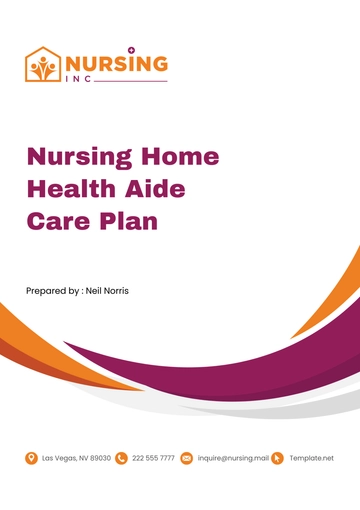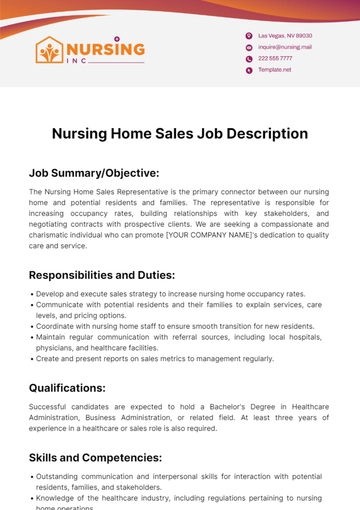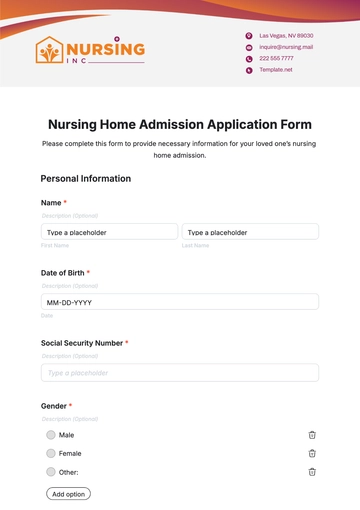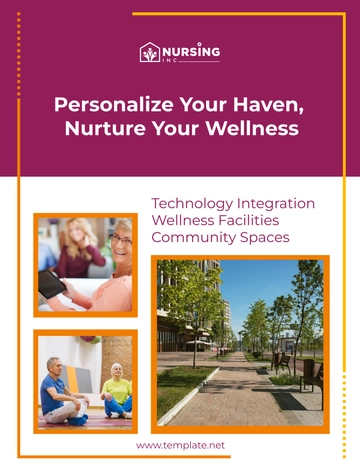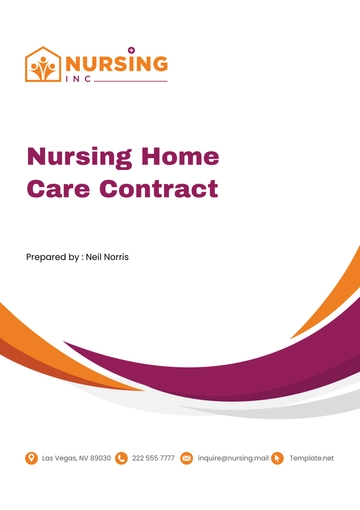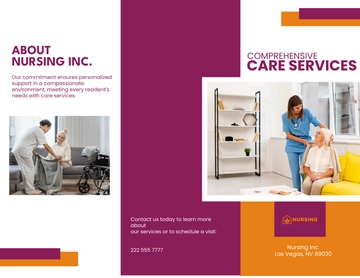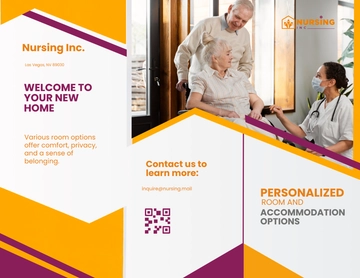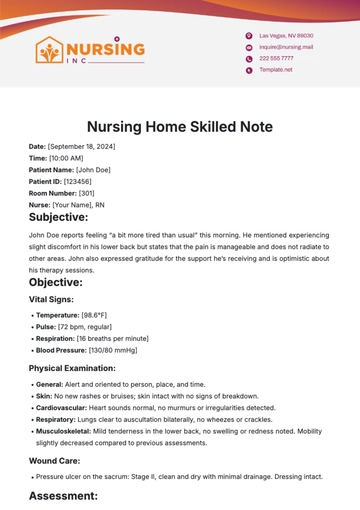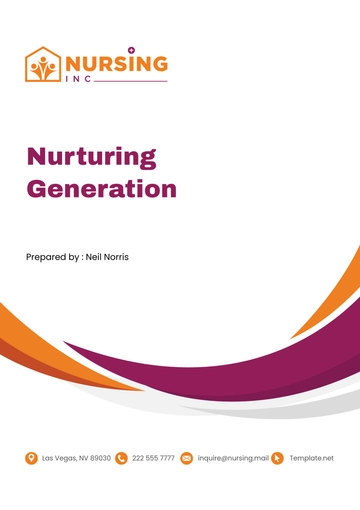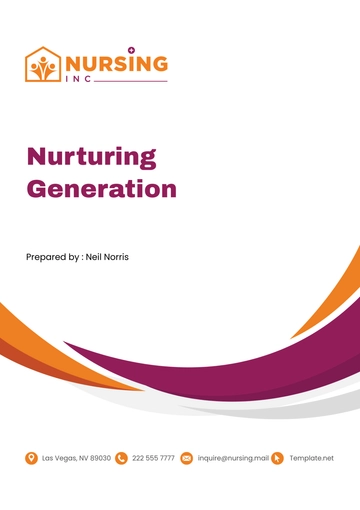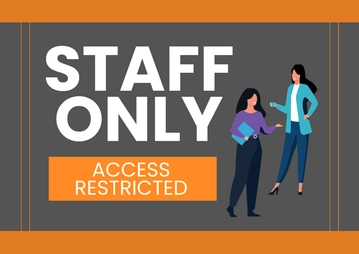Free Nursing Home Medication Management Policy
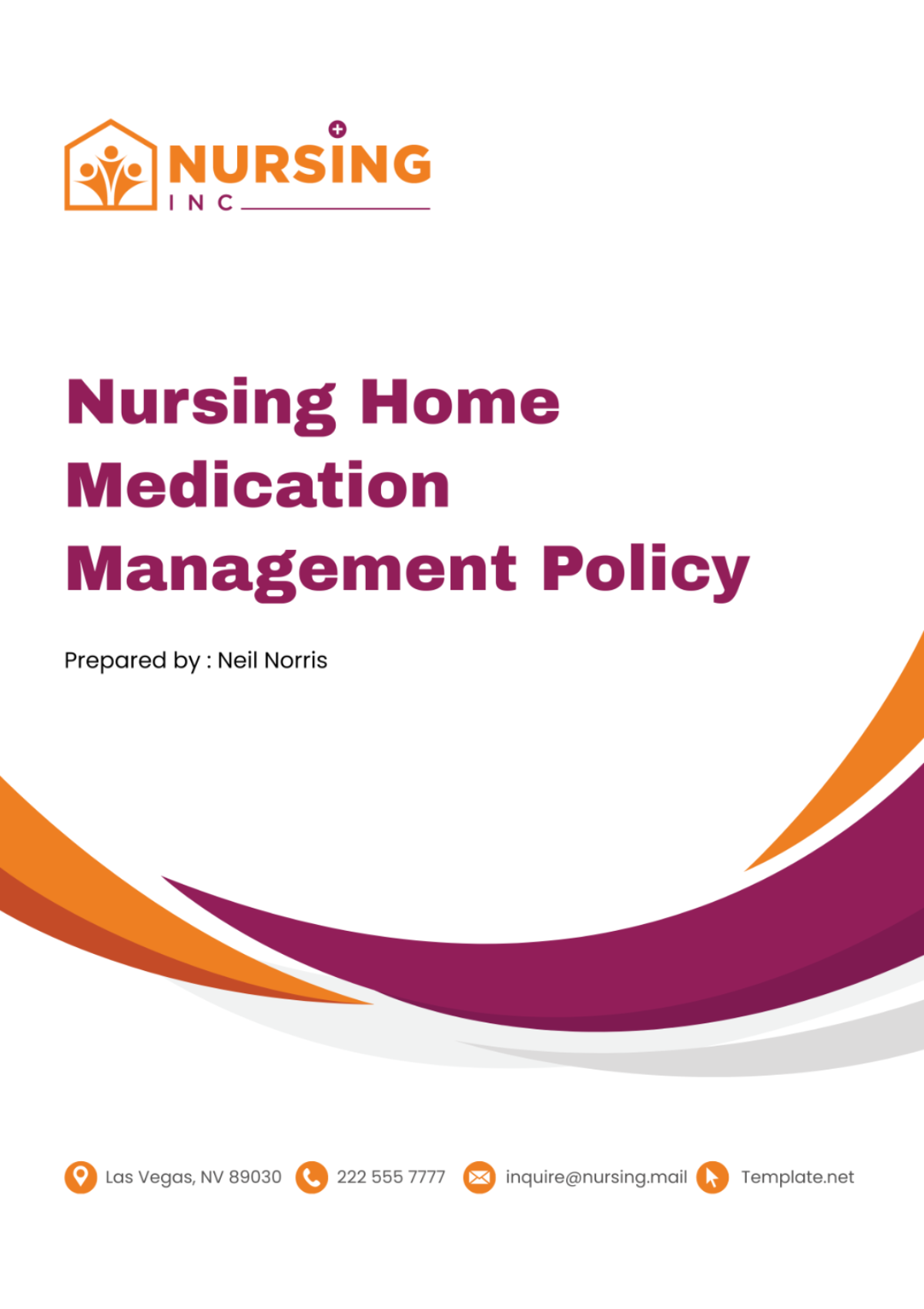
Management Policy
I. Introduction
This document outlines the Nursing Home Medication Management Policy of [Your Company Name], which is designed to ensure the effective management and administration of medications within our facilities. Through meticulous adherence to this policy, we aim to safeguard the health of our residents, maintain caregiver accountability, and uphold our organization's integrity. This policy encompasses the standards and procedures related to medication administration, communication protocols, record-keeping practices, and ethical considerations, thereby ensuring comprehensive care and safety for all residents under our care.
II. Organizational Structure and Responsibilities
The organizational structure of our nursing home is designed to ensure a seamless and effective medication management process, aligning with [Your Company Name]'s commitment to the highest standards of care. Below is a detailed table that delineates the distinct roles and responsibilities within our team. This structure facilitates clear communication channels and defines the specific duties of each team member, from the administrative staff overseeing the entire process to the healthcare and support staff directly involved in the day-to-day management of medications. By clarifying these roles, we aim to foster a collaborative environment that prioritizes the safety and well-being of our residents.
Position | Responsibilities |
|---|---|
Admin Team | Oversee the medication management process. Budget for medications and supplies. Ensure staff receive ongoing training on medication administration and safety. |
Healthcare Staff | Administer medications to residents. Monitor health changes post-administration. Accurately document treatments and outcomes. |
Support Staff | Assist in medication delivery logistics. Liaise with pharmacies, families, and other stakeholders. Support healthcare staff in daily operations. |
III. Decision-Making Process
The decision-making process in medication management is pivotal to ensuring the safety and well-being of residents. This process is multi-faceted, involving consultation, consideration, communication, and documentation, each playing a crucial role in managing the complex needs of residents.
A. Consultation
Engagement with the healthcare team is the first critical step. This involves multidisciplinary meetings where potential adjustments in medication are discussed in light of the latest health assessments. These discussions may include pharmacists, primary care providers, specialists, and nursing staff to ensure a holistic view of the resident's health needs and potential medication interactions.
B. Consideration
Consideration of the resident's health status and medication history is paramount. This involves a comprehensive review of the resident's medical records, current health status, and any recent changes that may affect medication efficacy or safety. The resident's own preferences and their family's insights may also be considered, ensuring a person-centered approach.
C. Communication
Open lines of communication with families and external medical professionals are maintained throughout the medication management process. This includes informing families of potential medication changes, the reasons for such changes, and any possible side effects or monitoring requirements. Effective communication ensures that everyone involved is informed and can contribute to the decision-making process.
D. Documentation
Documentation is a critical aspect, serving as a legal record of the care provided and as a tool for continuity of care. This includes documenting discussions regarding medication changes, the rationale behind those changes, the expected outcomes, and any monitoring plans. Documentation is done in a timely, clear, and accurate manner, following regulatory requirements and best practices.
IV. Ethical Standards and Conduct
The ethical management of medications within a nursing home environment is foundational to the trust placed in us by residents, their families, and the wider community. Adherence, confidentiality, non-discrimination, and integrity are not just principles but practices ingrained in every action and decision made by our staff.
A. Adherence
Strict adherence to prescribed medication procedures ensures that every resident receives their medications as ordered by their healthcare providers. This includes following all legal and professional guidelines related to medication administration, storage, and handling, minimizing the risk of errors and ensuring resident safety.
B. Confidentiality
Respecting the confidentiality and privacy rights of all residents concerning their medical treatments is a non-negotiable aspect of our ethical standards. Information about a resident's medications, health status, and treatment plans is shared only with authorized individuals, ensuring compliance with HIPAA and other privacy regulations.
C. Non-Discrimination
Equitable treatment in medication administration is ensured for all residents, regardless of their background, medical condition, or personal beliefs. This principle of non-discrimination fosters a culture of inclusivity and respect, ensuring that all residents receive the highest standard of care.
D. Integrity
Maintaining the highest levels of honesty and integrity in all aspects of medication management, from record-keeping to interactions with residents and their families, is essential. This ensures that our practices not only comply with legal and ethical standards but also reflect our commitment to transparency, accountability, and trustworthiness.
Through these comprehensive approaches and unwavering commitment to ethical standards, our Nursing Home Medication Management Policy ensures that all residents receive personalized, safe, and effective care. This policy is a testament to [Your Company Name]'s dedication to upholding the dignity, health, and well-being of the individuals entrusted to our care.
V. Communication and Information Management
Effective communication and stringent information management are pivotal to the success of medication management within [Your Company Name]. This involves not only the seamless flow of information among the care team but also maintaining transparency with families and ensuring compliance with data protection laws.
Internal Communication
Our approach to internal communication is structured around using approved channels, such as electronic health records (EHRs), staff meetings, and secure messaging platforms, to facilitate real-time discussions and documentation of medication management activities. This ensures that all team members are informed of medication orders, changes, and any resident-specific considerations, fostering a collaborative environment focused on resident safety.
Record Keeping
Maintaining detailed and accurate medication records is a critical component of our policy. This includes logging the name, dosage, time of administration, and noting any adverse reactions or side effects experienced by residents. Our record-keeping process is designed to be comprehensive and compliant with legal requirements, serving as a vital tool for ongoing care planning and regulatory inspections.
Stakeholder Updates
Regular communication with families and healthcare providers is a cornerstone of our commitment to transparency and partnership in care. Updates regarding residents' health status, particularly changes in medication management, are communicated through scheduled meetings, electronic updates, or phone calls, ensuring that families are kept informed and involved in the care of their loved ones.
Data Protection
In compliance with HIPAA and other relevant privacy regulations, we employ rigorous data protection measures to secure all health information. This includes the use of encrypted databases, access controls, and regular audits of our information management systems to prevent unauthorized access and ensure the privacy and security of resident information.
VI. Risk Management
Our risk management strategy is designed to proactively address potential medication-related errors and ensure the ongoing safety of our residents.
Safety Guidelines
We adhere to established medication safety guidelines and best practices, including those set forth by healthcare accreditation organizations. This includes the proper storage, handling, and administration of medications, as well as regular reviews of medication protocols to incorporate the latest safety recommendations.
Error Prevention
To minimize the risk of medication errors, we have implemented multiple safeguards, including double-checking processes and the use of technology, such as barcode scanning and electronic medication administration records (eMARs). These systems are designed to ensure accuracy in medication delivery and provide alerts for potential drug interactions or allergies.
Monitoring
Continuous monitoring of residents following medication administration is crucial for identifying and addressing any adverse reactions promptly. This involves regular health assessments, monitoring for signs of side effects, and adjusting care plans as needed to ensure the well-being of each resident.
Staff Training
Ongoing education and training for our staff on the latest medication management practices and safety protocols are paramount. Training sessions cover a range of topics, including pharmacology, resident rights, and the use of technology in medication management, ensuring that our team remains knowledgeable and competent in delivering high-quality care.
VII. Resource Allocation and Budgeting
Effective resource allocation and budgeting are essential for the efficient operation of our medication management system.
Financial Resources
We allocate sufficient financial resources towards the procurement of quality medications and supplies, as well as investing in technology that enhances medication safety and management, such as automated medication dispensing systems and advanced EHR software.
Human Resources
Investing in our people, we prioritize the hiring and continuous professional development of healthcare staff, including nurses, pharmacists, and geriatric medicine specialists. This ensures that our team is skilled, motivated, and capable of providing exceptional care.
Material Resources
We ensure the availability of cutting-edge medication administration tools and systems. This includes automated dispensers that reduce the risk of human error and electronic health records that provide comprehensive, real-time data on each resident's medication regimen.
VIII. Conflict Resolution
Handling conflicts effectively is crucial for maintaining a harmonious and efficient medication management process.
Identification
Recognizing conflicts early is key to resolution. Whether it’s a disagreement over medication protocols or interpersonal disputes among staff, identifying the issue promptly allows for swift action.
Involvement
Engaging all parties involved in a conflict is essential for understanding the different perspectives and underlying issues. This open dialogue fosters a culture of transparency and mutual respect.
Solution Exploration
Together, we explore potential solutions, weighing the benefits and drawbacks of each option. This collaborative approach encourages innovative problem-solving and consensus-building.
Implementation
Once a solution is agreed upon, we implement the action plan, monitoring its effectiveness and making necessary adjustments to ensure the resolution is successful.
Review
Continuous review of the conflict resolution process allows us to refine our approaches and prevent similar conflicts in the future, promoting a positive and collaborative work environment.
Through these comprehensive strategies in communication, risk management, resource allocation, and conflict resolution, [Your Company Name] ensures the safe, efficient, and ethical management of medications, reflecting our unwavering commitment to the health and well-being of our residents.
IX. Conclusion
[Your Company Name] is committed to implementing a comprehensive Nursing Home Medication Management Policy that prioritizes the health and safety of our residents. By establishing clear guidelines and responsibilities, promoting ethical conduct, and ensuring effective communication and risk management, we foster an environment of transparency, accuracy, and accountability. This policy underscores our dedication to delivering professional, ethical, and safe medication management services, thereby enhancing the well-being and satisfaction of all residents under our care.
- 100% Customizable, free editor
- Access 1 Million+ Templates, photo’s & graphics
- Download or share as a template
- Click and replace photos, graphics, text, backgrounds
- Resize, crop, AI write & more
- Access advanced editor
Ensure safe and effective medication management with Template.net's Nursing Home Medication Management Policy Template. Editable and customizable through our intuitive AI editor tool, this template empowers you to develop comprehensive policies that prioritize resident safety and regulatory compliance. Streamline processes, enhance communication, and promote best practices. Simplify policy creation and elevate medication management standards with Template.net today!
